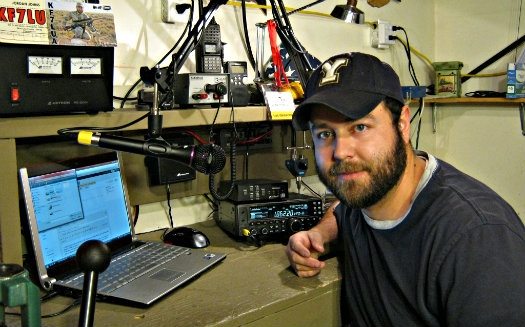What's happening at BCARA
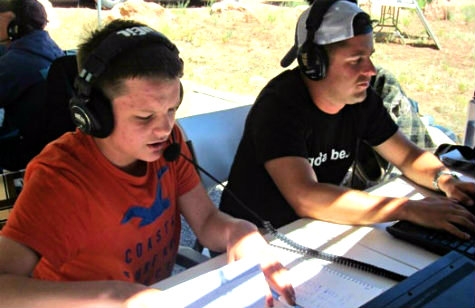
What is Ham Radio? (click here)
What is Ham Radio? Amateur Radio (ham radio) is a popular hobby and service that brings people, electronics and communication together. People use ham radio to talk across town, around the world, or even into space, all without the Internet or cell phones. It's fun, social, educational, and can be a lifeline during times of need. You can set up a ham radio station anywhere! In a field... ...at a club station.... ...or at home. Although Amateur Radio operators get involved for many reasons, they all have in common a basic knowledge of radio technology and operating principles,...
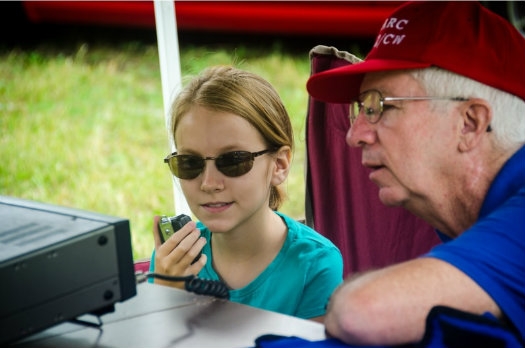
Why should I get licensed? (click here)
Why should I get licensed? Before you can get on the air, you need to be licensed and know the rules to operate legally. US licenses are good for 10 years before renewal and anyone may hold one except a representative of a foreign government. In the US there are three license classes—Technician, General and Extra. Technician License The Technician class license is the entry-level license of choice for most new ham radio operators. To earn the Technician license requires passing one examination totaling 35 questions on radio theory, regulations and operating practices. The license gives access to all Amateur Radio frequencies above...
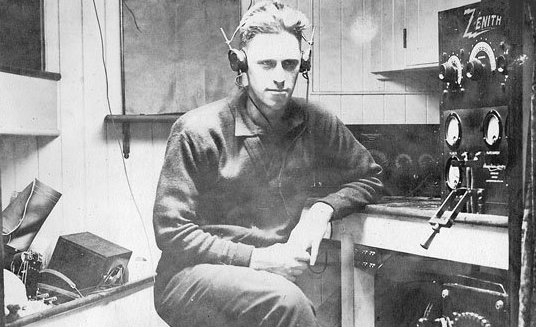
Ham Radio History (click here)
In 1873, James Clerk Maxwell presented his theory of the electromagnetic field. In 1901 Guglielmo Marconi communicated across the Atlantic with a radio device using high power and giant antennas. To curb interference, Congress approved the Radio Act of 1912, which required amateurs to be licensed and restricted to the single wavelength of 200 meters. In 1914 the American Radio Relay League was founded by Hiram Percy Maxim, who found that messages could be sent more reliably over long distances if relay stations were organized. Transatlantic transmitting and receiving tests began in 1921 and by July 1960 the first two-way contact...
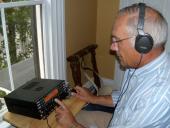
Your First Station (click here)
Your Amateur Radio station may change, but you have to start somewhere, right? Here are some fundamentals that all Amateur Radio stations have in common: Transceiver Power Supply Antenna System The Transceiver Selecting your transceiver will largely depend on how much you want to spend and what you hope to do. If you want to explore long-distance contacts on the HF bands, you’ll need an HF transceiver. If you are interested in chatting with local friends on the VHF or UHF bands, look for a VHF+ FM transceiver. Build Your Own Radio Most hams buy their radios factory assembled,...
-
What is Ham Radio? (click here)
-
Why should I get licensed? (click here)
-
Ham Radio History (click here)
-
Your First Station (click here)
Why should I get licensed? (click here)
Why should I get licensed?
Before you can get on the air, you need to be licensed and know the rules to operate legally. US licenses are good for 10 years before renewal and anyone may hold one except a representative of a foreign government. In the US there are three license classes—Technician, General and Extra.
Technician License

The Technician class license is the entry-level license of choice for most new ham radio operators. To earn the Technician license requires passing one examination totaling 35 questions on radio theory, regulations and operating practices. The license gives access to all Amateur Radio frequencies above 30 megahertz, allowing these licensees the ability to communicate locally and most often within North America. It also allows for some limited privileges on the HF (also called "short wave") bands used for international communications. Learn More
General License
The General class license grants some operating privileges on all Amateur Radio bands and all operating modes. This license opens the door to world-wide communications. Earning the General class license requires passing a 35 question examination. General class licensees must also have passed the Technician written examination. Learn More
Amateur Extra License
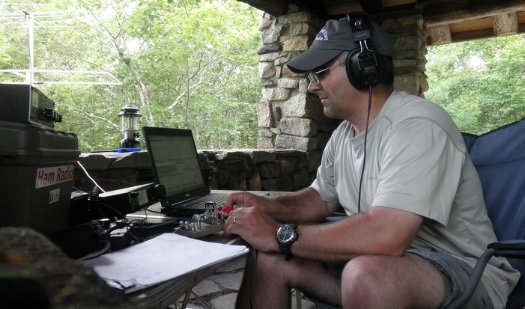
The Amateur Extra class license conveys all available U.S. Amateur Radio operating privileges on all bands and all modes. Earning the license is more difficult; it requires passing a thorough 50 question examination. Extra class licensees must also have passed all previous license class written examinations.Learn More
For more information, submit our online Prospect Package Request form or call: 1-888-277-5289.
BCARA provides testing opportunities to obtain your amateur radio license without a fee!
This content was created by ARRL.ORG The direct link is:
http://www.arrl.org/getting-licensed
Member Login
Main Menu
Who's Online
We have 11 guests and no members online
Meetings
ARRL News
American Radio Relay League | Ham Radio Association and Resources
The American Radio Relay League (ARRL) is the national association for amateur radio, connecting hams around the U.S. with news, information and resources.-
The ARRL Solar Update
There were two nights of visible aurora throughout the continentalUS and dead HF bands due to a severe geomagnetic storm caused bywhat Space.com calls "a colossal X5.1 class solar flare" andassociated coronal mass ejection (CME) on Tuesday, November 11.Spaceweather.com for November 14 reports that a NASA model of thelatest CME suggests that it could deliver a glancing blow to ourplanet's magnet...
-
Get On the Air for 2025 ARRL November Sweepstakes
Amateur radio operators throughout the US and Canada are getting ready for one of the most anticipated weekends of the year. The 2025 ARRL November Sweepstakes phone (SSB voice) contest takes place November 15 - 17, beginning at 2100 UTC Saturday and running through 0259 UTC Monday. The CW (Morse code) event was held 2 weeks ago, Nov. 1 - 3.November Sweepstakes, sponsored by ARRL The National A...
-
Images Beamed from Space Celebrate 25 Years of Ham Radio on the ISS
Amateur Radio on the International Space Station (ARISS) will mark two major milestones this month with a special Slow Scan Television (SSTV) event aboard the International Space Station (ISS). Beginning November 12 through November 20, the station will transmit a series of 12 commemorative SSTV images, pausing only for a scheduled educational contact.The “SSTV Spacetacular” will highlight both...
-
The ARRL Solar Update
Solar activity has reached high levels due to a pair of X-classflares. The first was an X1.8 on November 4 from Region 4274. Associatedwith the flare were Type IV radio sweeps, 160 sfu Tenflare, and apartial halo coronal mass ejection (CME) directed mostly off the NElimb in coronagraph imagery. Although the majority of the ejecta isexpected to pass behind Earth, there is the possibility of a sh...
-
2025 Veterans Day - Amateur Radio Events. ARRL Closed Nov. 11
Many amateur radio clubs and organizations are planning on-air commemorations and special events for Veterans Day 2025. Visit the ARRL Special Events Stations database, and contact the following stations on-the-air:In Philadelphia, Pennsylvania, the Holmesburg Amateur Radio Club will honor the Continental Marines Birthday. Special event station WM3PEN will operate November 8 - 12 from 1300Z - 0...
-
2025 “Dream Rig” Essay Contest for Young Ham Radio Operators
Six years ago, the Intrepid-DX Group, a international group of amateur radio operators, began their annual youth “Dream Rig” essay contest as a means to reach young people and interest them in amateur radio.“This year, rather than our past essays, we are seeking well thought-out and clearly communicated project proposals for a public access amateur radio station,” said Paul S. Ewing, N6PSE, pre...

